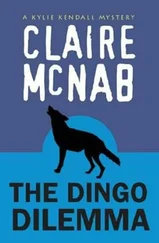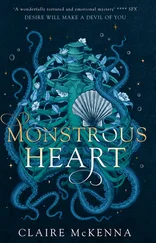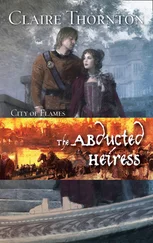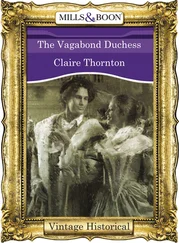“This road leads southeast to Cayenne,” Zhen said, pointing to the sparse line of soldiers and a patrol jeep blaring warnings far in the distance. “We don’t want to stay on this road. I know. I’ve seen what comes next.”
The smaller man looked up at the sun and then pointed off to the right, due south. He took off his leather shoes and socks and left them behind on the highway before stepping onto dry grass. The younger man followed. He looked back over his shoulder at Zhen and Dewei and nodded for them to come along.
Dewei looked to Zhen and frowned.
“We can’t trust these men,” he whispered.
Dewei was right. But the one man was very big and strong. And the other had purpose and place; he looked like he belonged as he melted into shade from the bordering forest. Zhen was a small urban dweller who had given herself up for dead as soon as she was discharged from the Effort. At least the two men in front of her were a new development, a step away from that prediction.
Zhen took Dewei by the hand and led him away from the highway leading to Cayenne. Dewei followed, shaking his head. He would follow her anywhere, he said, but didn’t have to like it. The group trekked through forest until they reached a river, probably a tributary of the Kourou River. The river was too wide to cross on foot, so they followed its bends until they reached a narrow bridge.
On the opposite bank, Zhen saw several wood-slat houses on stilts. One house stood less than fifteen meters from the bridge. The pile of bodies was visible only from halfway across the water. Zhen froze. Dewei turned back to her, his raised eyebrows forming a question. He had been too busy watching the other men in front of them and had missed the danger surrounding them. Zhen had to point because she couldn’t speak. The other men crossed the bridge, but only the large one stopped to gape. Zhen saw his whole body sigh and his wide shoulders slump at the horrific sight. Some of the bodies were small children.
Zhen forced herself to cross the bridge, but she refused to move for a closer look. Dewei stood beside her and shielded her view until the big man walked back over to join them.
“I’m guessing these houses are already picked clean,” he said. “That would explain the family rotting in a pile over there.”
He put his hands on his hips and took a few breaths.
“Do you two have any weapons?” he asked, suddenly looking Zhen in the eyes. “Those Effort bastards took my rifle before they spit me out on the road.”
Zhen shook her head.
“Well, I still have my hunting knife,” the man said. “And a compass. Maybe we could help one another. Because if we stay out in the open, we’re going to die. And if we hide in the forest, we’re going to need him to stay alive.”
He pointed to his friend, who had finally stopped far ahead to look back at them, agitated.
“My name’s Ned, by the way.”
“What is he saying?” Dewei whispered in Mandarin.
Zhen’s eyes flitted to the pile of bodies lying next to the stilts of what was their home. Those bodies had names once, too.
“What do you need from us, Ned?” Zhen asked in English.
He sighed but nodded and got to the point: Ned and his friend were almost out of food.
“So we give you food,” Zhen said, “and your friend will guide us through the forest… to where? To do what?”
“He’ll find us fresh water,” Ned said, perking up. “He’s looking for a certain river that will lead him to a big village. There’ll be food there. They clear land for gardens, and they fish and hunt. And there are lots of villagers. We’d be safe.”
“And then what?”
“And then we don’t die ,” Ned said, lifting up his hands. “At least not today and not tomorrow. What more can you ask for?”
Zhen nodded; she had no better plan and was living on borrowed time anyway. She put out her hand, like they did in Western movies, which made Ned snort a laugh. They shook in agreement and started off toward the smaller man.
“Okay then, Gustavo!” Ned called out to his friend. “We’re all coming with you. These guys are going to share their rations, and I’m the guy that got you here. Your turn.”
The man named Gustavo looked back at Zhen and Dewei and shook his head. Ned pulled him off to the side for an argument in hissing whispers. Ned finally shouted, “Well, do you want to get there alive?”
Gustavo cursed to himself. The words started in English but morphed into a strange language Zhen had never heard.
“South,” he commanded. “And don’t slow me down!”
He turned and refused to look them in the eyes for days.
THIRTY-FOUR
Into the Forest
French Guiana June 9 T-minus 15 days to nuclear detonation
GUSTAVO WALKED AHEAD of the others, turning to slip between tree trunks, high-stepping through the brush, and keeping an eye out for danger. Wayãpi were sure-footed in the undergrowth with their dexterous feet and strong big toes. Their soles were flat and hard with calluses but still graceful while balancing on a tree trunk or bridging a wide stream. The soles of Gustavo’s feet had grown too soft, but they would harden again.
He set a brisk pace the others couldn’t keep. The more they slowed him down, the more he thought bad things, like how two people could survive longer on the rations they split in four every night. Gustavo yearned to reach the Oyapock and find his people, but as himself and not as someone who would murder his own friends in their sleep. He had to keep reminding himself who he really was, like a prayer or shamanistic chant.
I remember Father St. John. I remember our church in Pedra Branca. I remember writing poetry about our losing battle…
Before meeting the priest, Gustavo thought, before I took the Portuguese name Gustavo, I was Wanato of the Wayãpi by the Amapari. I remember knowing what the Grandfather People knew: how to start a fire, how to beat a vine whose pulp can stun fish in the rivers. I remember all the trees, plants, and animals. I remember all the stars that hang in the sky…
Wanato smelled burning. He swiveled his head to look back at the bare soles of his moving feet. They were darkened with ash. It wasn’t long before the group reached a large clearing where the underbrush was scorched down to sharp, broken roots for as far as the eye could see. Where there was once every shade of green and the full music of creatures, there were now blackened tree stumps and silence. The lingering smell of char hung thick in the air.
Wanato stepped more carefully across the wasteland and told Ned to check the compass. They needed to stay as close to due south as the terrain allowed. When Ned didn’t answer, Wanato turned back to see the three of them struck dumb and motionless at the scale of destruction.
“This is nothing,” Wanato yelled at them. “Keep moving.”
Other than boats, the first motorized vehicles that Wanato had seen as a child were construction vehicles—and he had screamed in terror.
I remember that my name is Wanato and I am Wayãpi, he chanted in his head. I remember why my people don’t kill butterflies…
Wanato’s father once asked his son a long time ago, Why don’t Wayãpi kill butterflies? This was an easy answer for the boy. Because butterflies look after the vines that tie the sky to the ground and keep it up. Wanato’s father had nodded in the dying firelight and asked what happened when the Old People killed all the butterflies. This was back in an age when the world was new and Wayãpi were like children. The sky fell to darkness , Wanato whispered. The Old People couldn’t hunt… The words came so quickly that Wanato had to gasp for breath toward the end of the story as Yaneyar the hero brewed caxiri beer and enticed his Wayãpi people to drink, sing, and dance until the sun rose again.
Читать дальше












